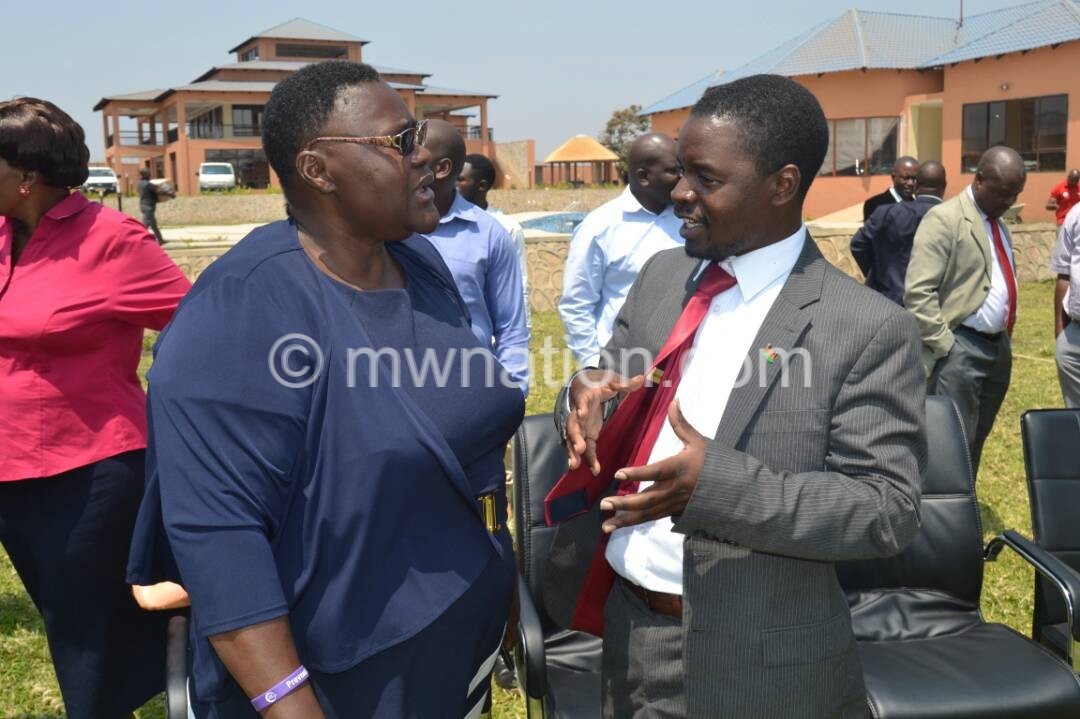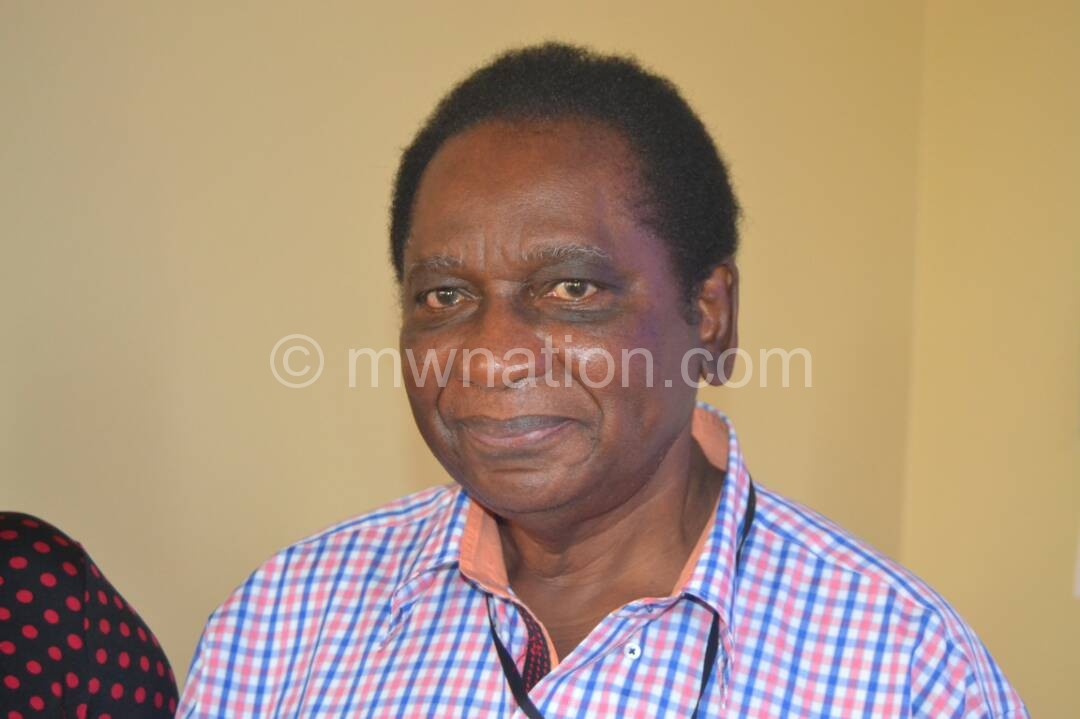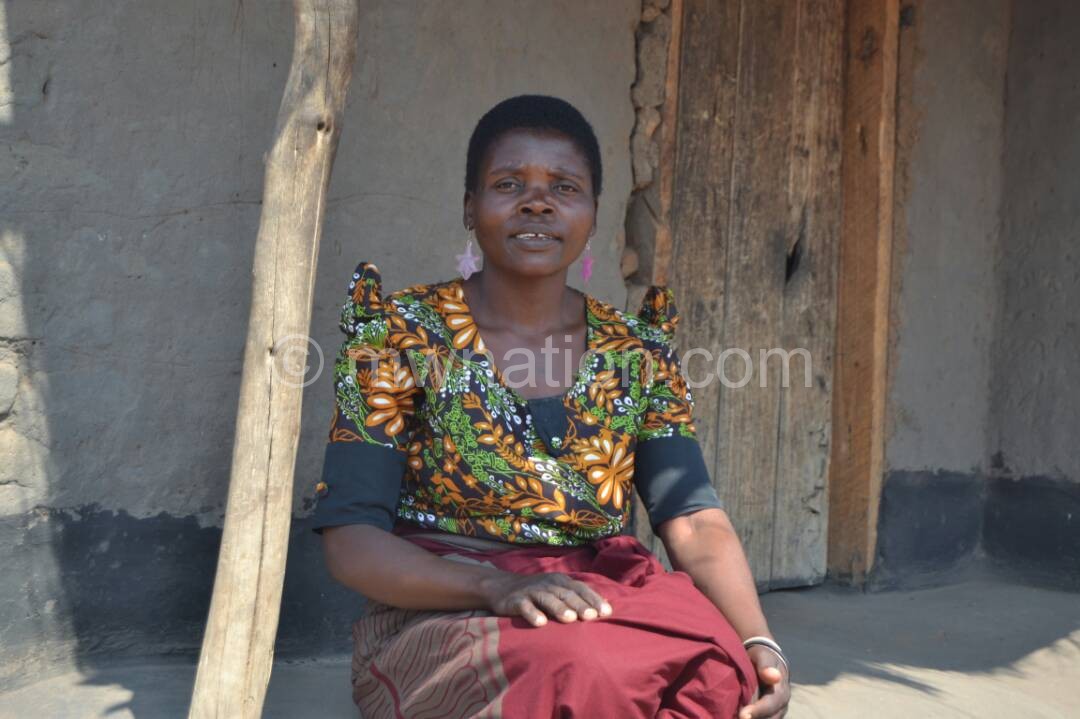Slow march to reduce unsafe abortion
Living in a grass-thatched hut near Mponela in Dowa, Magret Kawala knows why rural women will keep dying of backstreet abortions unless laws are relaxed.
The village heads, who reigns over almost 50 households and 250 people, counts herself “lucky to be still alive” having survived deadly complications of clandestine abortion eight years ago.

“My lastborn was only two months old when I started vomiting and feeling dizzy. I couldn’t eat. I went for checkups and a nurse confirmed that I was pregnant. I felt bad. The baby was still lactating. I didn’t know what to do really,” she recalls.
Kutumbiza, getting pregnant while still breastfeeding, does only not deny the baby adequate care and nutrition. It also makes a woman a laughing stock.
The disgrace and burdens of an unintended pregnancy pushed Kawala and her husband to terminate it.
“When I heard that I was pregnant, I asked the nurse to remove it. He refused, saying laws outlaw them abortion except to save the life of a woman. I went to a private clinic, but I couldn’t afford an abortion,” she recalls.

But the nurse had just put Kawala on a path to perils of unsafe termination pregnancy.
She remembers walking for three hours to meet a traditional abortionist who gave her a bottle of a cloudy concoction to eject the foetus.
“The elderly woman told me she could poke it out using some root, but warned that I would experience too much pain to walk. She said the concoction was safer,” she recalls.
The concoction, which she gulped around 4pm, might have flushed the foetus around 7.30pm.
But it was not safe either.
She narrates: “I bled heavily and collapsed. I felt frail and dying. I delayed to go to hospital, fearing that I would be arrested of procuring an abortion. I couldn’t walk. I couldn’t talk. Three days later, I collapsed. My husband and in-laws hired an ox-cart to take me to the same clinic where they had earlier refused to help me,” she explains.
She was still unconscious when staff at Dzoole Health Centre referred her to Dowa District Hospital where her rotten uterus was removed.

“I learned with shock that I will never have a baby again. We had agreed to have four children, but it came too quick. The baby in hand was malnourished and miserable,” she recounts.
Losing fertility was tragic, but her worst heartbreak came when her husband abandoned her and remarried.
“It was hard to accept. He encouraged me to abort, but quickly changed heart when I lost my womb. Now, I’m raising our children single-handedly as if their father is dead. He wanted a child. I could not bear one,” she says.
Surviving complications
Kawala has a reason to smile: she survived complications of concealed abortions which kill up to 18 Malawian women in every 100 dying of pregnancy-related complications.
She offers sordid flashbacks that put the unsafe abortion in context.
“When I regained my consciousness, there were eight women in a ward. Five had post-abortion complications and two died in three days,” she says.
Abortion is the third largest killer of pregnant women in the country, only surpassed by severe bleeding and high blood pressure.
“It remains challenge. We need to do something about this neglected killer before it kills more women,” says gynaecologist Dr Ausbert Msusa, from the College of Medicine (CoM).
The doctor and his students do pregnancy-related surgeries at Queen Elizabeth Central Hospital (QECH) in Blantyre.
Msusa is often booked to operate on four patients a day, but says he usually sees two as the theatre at QECH is occupied by post-abortion cases.
“If safe abortion was accessible in the country, a woman would go to work, go to the nearest clinic and come back. Nobody would not know that she has just terminated a pregnancy,” he explains.
But the restrictive penal laws push women to secretly procure abortions that often leave them dying or with disabilities and infertility.
“The country does not lack evidence on the costly impacts of unsafe abortion,” says Msusa. “Numerous studies show restrictive laws are a major barrier to safe abortions. They have failed to stop women from terminating pregnancy, but fuel unsafe abortion. Sadly, those with life-threatening complications seek medical assistance six days later and spend many days hospitalised. This exerts immense pressure on our healthcare system.”
Msusa was among six researchers—from the College of Medicine and US-based Guttimacher Institute—who discovered that almost 470 000 pregnancies in 2015 were unintended and 141 000 were aborted secretly.
Almost 60 percent of women who terminated pregnancies were treated in various hospitals, the findings show.
This shows how unsafe abortions are weighing down the country’s healthcare system which is grappling with high disease burden, low funding and high vacancy rates.
The Ministry of Health estimates that government spends almost $1 million (about K750 000 000) treating post-abortion conditions.
Dr Owen Chakhwaza, the deputy director of Reproductive Health Unit (RHU) in the ministry, says both the deaths and spending would be averted if safe abortion was accessible.
He explains: “Clearly, we need to do something about it because up to 40 percent of patients in gynaecological wards are admitted for post-abortion complications.
“In this way, government is losing almost K1 billion which is enough to run QECH or Kamuzu Central Hospital for a year. The referral hospitals get K60 million to K100 000 million a month, enough to buy essential drugs, feed patients, run ambulances and pay doctors.”
Unsafe abortion contributed to Malawi’s failure to achieve the Millennium Development Goal (MDG) to reduce maternal mortality from 807 deaths per 100 000 live births in 2000 to just 155 by 2015.
Government’s assessments show the figure dropped to 439 per 100 000 births. United Nations agencies insist on a higher estimate of 574 deaths in 100 000 live births.
The high maternal mortality rates compelled the Ministry of Health to petition the Law Commission to review laws that only allow doctors to legally and safely terminate pregnancy when a woman’s life is in danger.
Special Law Commission’s empanelled to review the Penal Code and Gender Equality laws affirmed the need to review anti-abortion laws.
In 2013, President Joyce Banda named commissioners to re-examine the contentious laws.
In July 2015, the special law commission rejected calls to decriminalise the procedure and recommended inclusion of more grounds for legal and safe abortion.
According to their report published by Minister of Justice and Constitutional Affairs Samuel Tembenu in April, proposes grounds include (1) a pregnancy that endangers a woman’s physical and mental health, (2) when the foetus is too malformed to live after birth and (3) pregnancies resulting from rape, defilement and incest.
“The commissioners, drawn from various backgrounds, consulted widely. In the end, they did not give women freedom to seek abortion on demand, but expanded the grounds to align the laws with the Maputo Plan of Action which government ratified,” says deputy chief law reform officer Mike Chinoko.
Campaigners say the law reform is slow and does not meet the demands of the Maputo Protocol which require government to guarantee women’s sexual reproductive rights, including making safe abortion accessible.
“There is not much to smile about,” says Foundation for Children (FCR) executive director Jennifer Mkandawire. “Women are still dying while we are delaying to change the law.”
But Chakhwaza says although the strides are sluggish, but the good news is that the process is underway and the report is on the way to be debated in Cabinet.
Raw deal
According to gender activist Emma Kaliya, the “piece-meal approach is a raw deal”, but remains a step forward.
“Half a loaf is better than none. We are happy that the law reform process is underway. The Executive has done its part. Parliament must do its part too. It is sad that we are pushing the law reform too close to 2019 elections when not many politicians will be willing to talk about abortion,” she says.
Kaliya discredites the fears that liberalise abortion laws will overwhelm underfunded health facilities with women seeking abortions.
“The law does not compel pregnant women to go for abortion. It is not true that when a woman gets pregnant, the first thing she thinks about is abortion. If she is determined to abort, she will terminate the pregnancy whether the law allows it or not. If she wants to keep it, she will not terminate it even if the law allows safe abortion,” she explains.
There is a heated debate over the moves to relax abortion laws, with Catholics and Evangelicals staging a march and petitioning Parliament and President Peter Mutharika to snub “a culture of death” and affirm the religious belief that “life begins at conception” to get votes in 2019.
In an interview, presidential advisor Mavuto Bamusi said government faces a dilema to strike a balance between reducing maternal deaths and respecting the right to life.
“Let’s avoid politicising some of these issues. This is not a political matter, but a health issue. It’s a rights issue. The President will make a decision depending on facts and realities on the ground. Government has a duty to save lives,” he says.
But gaenacologist Dr Chisale Mhango says the call for liberal laws is neither about the rights and wrongs of abortion nor the debate over morality and religious teachings.
“This is about saving lives of women,” he explains. “Any law reform is not justified by what people think, but the need for charge. We know restrictive laws have failed to prevent women from seeking abortion,” he says.
Having survived agonies associated with backstreet abortion, Kawala terms the existing law “suppressive and unfair” especially to the rural poor.
She says: “For rural women, unsafe abortion is a death sentence. When the public health facility refused to help me, I went to Banja La Mtsogolo where I could not be assisted because I had no money. This is why I rushed to the traditional birth attendant.
“Relaxing the laws will liberate every woman who decide to abort to go to the nearest clinic and terminate the pregnancy safely. No deaths. No bleeding. No complications.”





